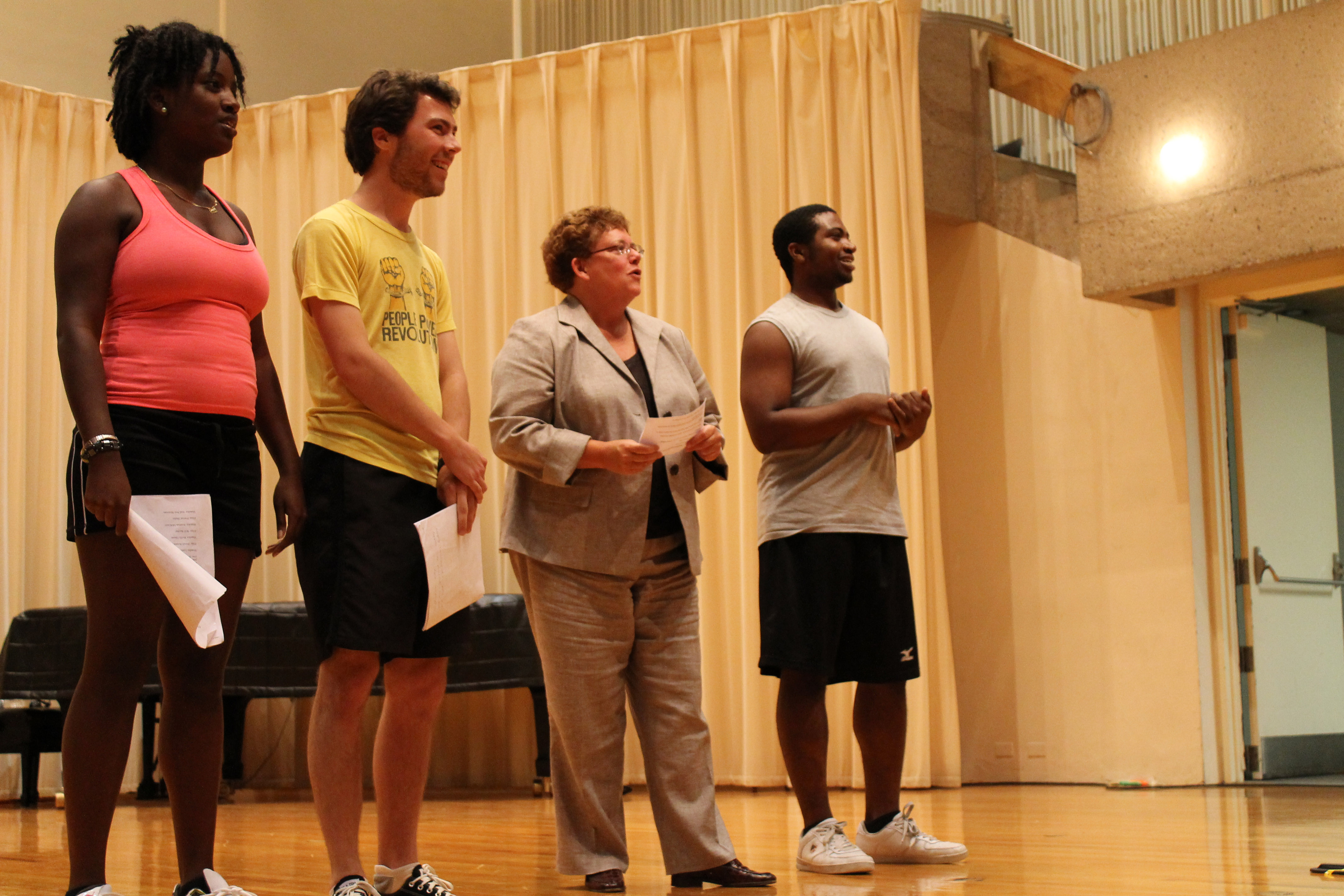

The Board of Trustees announced the election of Carolyn “Biddy” Martin the 19th President of the College on June 14th, ending the Presidential Search Committee’s yearlong search to find Tony Marx’s successor.
Martin, a distinguished German studies scholar with numerous articles and two books to her name, was initially reluctant to leave the chancellery at the Univ. of Wisconsin-Madison (UW), where she had earned her Ph.D. in German Literature in 1985. John Isaacson, of Isaacson, Miller (the executive search firm the College had retained), however, managed to coax her into an information session with Jide Zeitlin ’85, Chairman of the Board, and another with a few members of the Committee. “It was the combination of what [she] learned about Amherst [on her own]…and meeting with the Committee and Jide,” Martin explained, that finally swayed her. Hers was added to a list of more than 300 names that the Committee subjected to multitudinous vetting for the post.
The Committee — composed of students, alumni and faculty — further narrowed the list using the criteria outlined in a document made available to the College community at the start of the search. That 18-page document provided an overview of the College’s expectations of the candidate whose attributes, experiences and energy would best resonate with those of the institution; “Terras Irradient,” the Amherst motto, topped the document, and its final criterion was the need to search for a President with the “love…for this small place and its large ambitions.”
After her two informational meetings in March, Martin met with the entire Committee in April for a panel interview. “Amherst has made itself an exemplar of the educational value of diversity, and Biddy’s background speaks to a steadfast commitment to diversity in all its dimensions,” Prof. John Servos, a member of the Committee, explained. “More than this, Biddy can draw on personal experience in explaining the importance of openness and diversity...She is an openly gay woman. She does not make too much of these facts, but they surely give her understanding and compassion — an instinctive sense of what young people must feel who are neither privileged nor in the mainstream.”
The College’s Trustees formally voted to approve Martin’s selection during last year’s Commencement ceremonies, after meeting with her that day. She was secretly flown into Amherst for the meeting, but almost ran into trouble when a chemistry professor from the Univ. of Wisconsin-Madison greeted her while awaiting his daughter’s graduation. “I told him ‘I’m here visiting Tony, who’s a friend,’” she explained with a smile.
She later flew back to Madison to inform the Board of Trustees there of her decision. Dean of Faculty Greg Call was named Acting President of the College in the interim, before the announcement about Martin’s selection came in June.
Before arriving in Madison in 2008, Martin had risen up the ranks at Cornell Univ., becoming provost in 2000 after previously serving as the chair of the German studies department and a senior associate dean in the College of Arts and Sciences. While in Ithaca, she oversaw the construction of a new life sciences building, the overhaul of the financial aid system to eliminate loans for families with incomes below $75,000 and the development of fund raising priorities for a large capital campaign.
Martin’s presidency comes at a time when the College is breaking ground on a number of new fronts, not the least of which is the election of the new President herself. She became not only the first female president in Amherst history, but also the first openly gay person to head the institution.
Martin’s experiences at UW were even more varied, as she gained acclaim back in the Badger state as a consensus builder around sometimes-unsavory initiatives. At Amherst, in the short term at least, she will be shepherding the school through several initiatives that predated her. Chief among them are the establishment of the new science center, the hiring of a new generation of faculty members and the enhancement of the diversity of the student body. In those pursuits, Martin has said that she plans to make decisions rooted in a “diversity [that] needs to be the descriptor of the whole, not the descriptor of a portion of the whole.” That focus on evaluating and reaping the benefits of diversity — the multi-faceted diversity Amherst can offer — seems central to the 60-year-old’s goals. The applicability of the College’s commitment to diversity is of particular interest: “Is your education changed by virtue of the diversity we’ve achieved?”